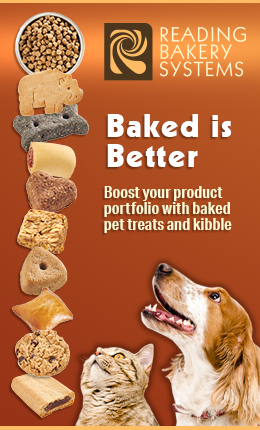Consumer demand and the evolution of legislation about environmental impact, waste, and pollution have meant that the pet industry is adopting and seeking more and more sustainable packaging alternatives and production processes. In recent years, reducing, reusing, and recycling has become a priority for both pet owners and those companies in charge of meeting their needs.
We already know that the main function of packaging, in addition to making it possible to divide and transport products, is to protect the useful life and conditions of the food or various products it contains, and that is why, as we cannot do without its use, we must seek and adopt the best materials and processes to try to take care of the negative impact on the ecosystem and society that our choices produce.
What are we talking about when we talk about greenwashing?
The English concept of greenwashing combines two words: green and washing, referring to what means a 'greenwashing' of a company reputation, in which unsustainable actions are hidden or disguised, intentionally or not (or not as sustainable as proclaimed) under the motto of sustainability and ecologically responsible actions to clean, improve or change its positioning.
In 2023, the analysis company Kantar published the Sustainability Sector Index 2023, a global study about consumer sustainability concerns and behaviors, where it states that more than half of respondents believe that brands, regardless of their industry, are misleading and unclear when reporting on their sustainability actions. Greenwashing can generate false impressions or provide misleading information about the benefits and environmental care of a product, service, or company through exaggerating actions related to environmental care, using ambiguous language, or emphasizing achievements while ignoring negative impacts, for example.
Of course, social media is one of the places where greenwashing is most common. Fake news volume or reproduction of information from third parties that travel through digital platforms makes it very difficult for messages not to be distorted, not to mention that, unfortunately, some people or companies use them to influence in a minor way.
Tips to communicate honestly and avoid greenwashing
As producers, pet food manufacturers, or distributors, it is natural that we want to attract consumers to our products, and that is why it is essential to know our processes very well and how to avoid communicating them and falling into greenwashing. Here, we share some tips:
- Knowing the product and its components very well: Production companies must ensure their design and marketing teams know well what processes, changes or transformations must be communicated about environmental, social, and health care to communicate the impact (both positive and negative) of their decisions and movements. To avoid greenwashing, it is essential to communicate information with precise and clear statements, understandable to all potential consumers, based on verifiable and updated evidence, that contemplate and tell the complete story of the product.
- Being transparent: with the conditions or warnings, if any, about uses or claims of the products or their components.
- Not exaggerating: the environmental impact, or declaring anything false, explicitly or implicitly.
- Clearing durability and disposability: This kind of information and procedures should be clarified and labeled if applicable. For example, some companies claim that their products are biodegradable, but they are partially misleading their consumers because they do not decompose within a reasonable period.
- Giving access to more information: through QR codes, direct links to website sections, and the like.
- Keeping your word: One of the keys to avoiding greenwashing is just doing what you say, not only to avoid falling into these unethical practices but also to avoid losing trust and creating a gap between actions and goals.
- Informing, even if there is little to communicate: The absence of communication is not the best for a brand. Different surveys show that more than half of the consumers surveyed consider it very difficult to know which products are good or bad from an ethical or environmental point of view, due to a lack of information. If they do not clearly understand how a company or product contributes to ecological and social care, we are not helping them make information-based decisions.
- Being careful with empty messages: Saying a lot while saying nothing is a wrong strategy. The worst thing that can happen to us as a company is not being reliable, because consumers will lose trust in the brand, judging it as dishonest.
Conclusion
Nowadays, trust in brands is mainly based on three principles: integrity, identification, and inclusion. When consumers buy products with claims that later turn out to be false, they become disillusioned and lose trust not only in that specific brand but in the entire industry as well. That is why it is so important to take care of the ethics and image of the market all together. And although regulation grows every day throughout the world, we must still encourage and appeal to workers' ethics and morals, because, in most countries, there are still no specific regulations or penalties for these practices when misused.
Source: All Pet Food Magazine
You could be interested: The Conscious Nutrition Era, or With Science Era, Now in Dogs and Cats
About author
María Candelaria CarbajoI’m a creative, interdisciplinary person, translator, and editor. I collaborate in producing and writing creative, high-impact projects to promote cultural exchange, transmit differential values, and connect with people/the audience. Likewise, I enjoy teamwork and joining forces, experiences, and knowledge to bring the world all the potential of those ideas that seek to impact people’s lives positively.

































